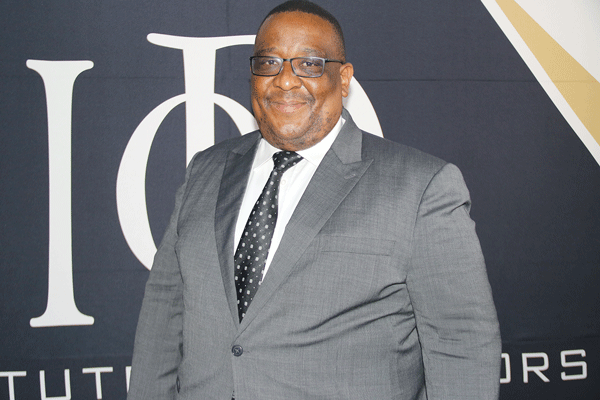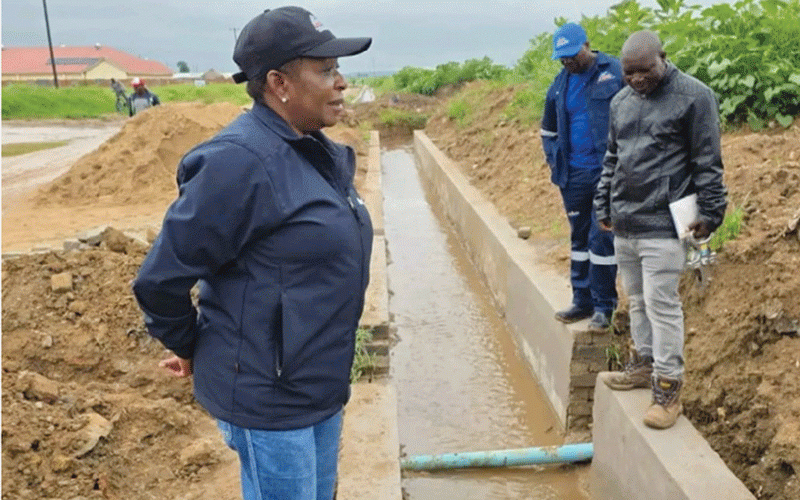
COMPETITION to attract foreign direct investment (FDI) is rising. Across Africa, the race to leverage on the region’s vast resource endowments to build economies is increasing. It is the same case with Zimbabwe, where the past five years have seen investors pour millions of United States dollars to exploit vast coal endowments. It is all part of economic development. But for Green Building Council of Zimbabwe president Mike Juru (MJ, pictured), if the country is not careful, what looks like a positive FDI influx now may leave Zimbabwe with scars that will haunt its citizens for many decades to come. In this interview with our business reporter, Tanyaradzwa Nhari (TN), Juru discusses this and a range of negative implications that come with the ongoing industrialisation drive in Zimbabwe, Africa and the world. Below are excerpts of their discussion;
TN: You said Zimbabwe is one of several countries worst affected by climate change. Please explain this.
MJ: Yes, we are among the worst affected. You can look at the cyclones. We never used to have cyclones, but they are now frequent and they are getting worse. This makes it everyone’s responsibility to prevent climate change. We must start with the government. There are commitments that the government has made starting with the Constitution, which talk about the issue of environmental rights. We must take a look back at what has happened since we had the International Labour Organisation convention (on climate change) a few years ago. We need sustainable development. Droughts are coming from climate change. These things will keep haunting us. We have poverty because we have droughts. We must not try to address the secondary, let us go back to the causes of climate change, which are basically carbon emissions from manufacturing and other processes.
TN: You represent the Green Building Council of Zimbabwe. Where does business come in when we talk about climate change?
MJ: I know that people will argue that our contribution to carbon emissions as Zimbabwe is nothing, but it plays a part. The biggest contribution to carbon emissions are big economies like the US and China. That is where most carbon missions are coming from. But we cannot leave it to them because whatever they are doing there, it is affecting us. We need to show our commitment and play our part. It will also shake them (industrialised economies) to know that the Third World is doing something.
TN: Do you think local companies have embraced issues to do with climate change? Are corporate leaders playing their role?
Fact file: Mike Juru- Is the current president of the Green Building Council of Zimbabwe;
- Immediate past chairperson of the Institute of Directors Zimbabwe;
- Former president of the Real Estate Institute of Zimbabwe;
- Has held leading positions at the Zimbabwe National Chamber of Commerce, to the level of deputy president for the Mashonaland Chapter; and
- Founder and managing director of Integrated Properties.
MJ: A director has the responsibility to protect people because they are consumers of the products that their companies are producing. It is not all about just making money, but companies must make money in a responsible manner. That is where the shift should be seen now. The earth needs us because there is no life without the environment, and there is no business without the environment.
TN: With specific reference to Zimbabwe, what are your concerns?
- Chamisa under fire over US$120K donation
- Mavhunga puts DeMbare into Chibuku quarterfinals
- Pension funds bet on Cabora Bassa oilfields
- Councils defy govt fire tender directive
Keep Reading
MJ: I am a real estate person. We must note that everything in a building comes from the environment. We talk of things like cement, bricks, timber, aluminium, glass and steel – even the processes that make up the brick – it is from the environment. Our biggest challenge is that a significant part of our energy comes from coalfields in Hwange and the thermal power plant, which affects rainfall patterns there. So, we need to first reduce our dependence on coal.
TN: Coal has really become a big issue in recent decades
MJ: You find that in Hwange, it is even worse because a lot of investors have gone there in recent years. We now have more operations there beyond the mine that has always been there – Hwange Colliery Company Limited. The capacity of the thermal power facility there is being increased. This means it will consume more coal.
TN: You seem to be worried more about coal, am I right?
MJ: I am not interested in Hwange alone. I am also interested in someone with a house because what is happening in Hwange is beyond an individual’s control. But there have already been some small steps covered. Companies like Schweppes are now off-grid. If all companies are to be off-grid there will be less pressure on Hwange. So, instead of just fighting, why do we not create responsibility ourselves as corporate citizens? We must say this is how we are going to do our operations – the Schweppes way. The more we use energy the more they burn coal. That is where my issue lies. Directors are supposed to be responsible corporate citizens
TN: What are you saying now in terms of directors’ attitude?
MJ: In corporate governance, there is what we call environmental social governance. That is where corporate governance is moving towards. We are saying what are you doing for the environment? The energy that is used in business comes from the environment. For there to be a product there is energy that is coming from the environment. Entities must be conscious of their impact on the environment, and do something to protect the environment for them to increase profitability. Gone are the days when companies would assess if they are making money only. Now the issue is; are you making money with tomorrow in mind? If you destroy the environment, then there is no life tomorrow.
TN: You are the CEO of Integrated Properties. What you are doing?
MJ: We operate in a building where there is electricity and water. Water is pumped using electricity. Chemicals for water purification are processed using electricity. So, you see the importance of electricity in everything that we do. For the building to operate it needs electricity and for me to work I need electricity. So, if we solve the electricity issue that is 40% of the problem solved. We must go for clean energy, but not only that. We must also use less of that clean energy. As long as power is coming from Hwange (coal) we have a problem.
TN: Tell us about the Constitution, and the environment.
MJ: Constitutionally, we have an obligation to the environment. Section 73 of the Constitution talks about environmental rights. The Environmental Act has a Section, which talks about the issue of emissions. If you look at the UK, there are some people without cars because the fuel is expensive, the taxes are expensive (government discourages use of more cars to protect the environment). They should adhere to several provisions for their vehicles to be on the road. It becomes a costly exercise because the older the car is, the more expensive (higher taxes to pay) it is to maintain. There is a need for personal responsibility. Companies must ask themselves that in whatever they are doing, what is the impact on the environment?
TN: What is happening in other African countries?
MJ: In South Africa they have the Green Building Council. You may ask why buildings are important. It is because 40% of emissions come from buildings. About 30% of waste is generated from buildings. So, buildings contribute so much, and dealing in buildings on their own would have played a very significant role in climate mitigation and adaptation. That is what the South African government has done. They have buildings that are rated in terms of things like waste separation and waste segregation. The South African government took the initiative that was started by the private sector that all buildings are green-star rated.
TN: And your suggestion for Zimbabwe?
MJ: We can follow them. Tanzania has created a similar council. It’s all about the government taking responsibility. In terms of what we have done here, we are working with the climate department and that is a step in the right direction. The Ministry of National Housing has bought into our story. Beyond that, we are saying we will need the Ministry of Finance, the Ministry of Industry and Commerce and others. Why should people wait to be forced by the government? We have to make environmental protection part of your lifestyle.










